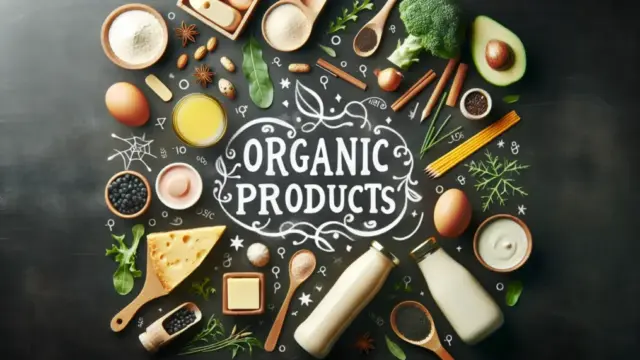Are you curious about organic coffee beans? Many people are drawn to them for their environmentally friendly and health-conscious qualities, making organic coffee a special delight for coffee enthusiasts. In this article, we’ll break down everything from how to choose organic coffee beans to roasting methods, all in a way that’s easy for beginners to understand.
By exploring the unique characteristics of organic coffee beans and the impact of their cultivation methods, you’ll gain a deeper appreciation for this brew. We’ll also delve into the joys of roasting and the cultural background surrounding coffee, so stick around until the end!
- Understanding what organic coffee beans are and their appeal
- Tips for selecting and where to buy
- Insights on roasting methods and cultural context
What Are Organic Coffee Beans? Their Characteristics and Appeal
Organic coffee beans have been gaining popularity among consumers in recent years. With increasing awareness of environmental issues and health consciousness, there’s a growing demand for coffee beans cultivated without chemical fertilizers or pesticides. In this section, we will explore the definition of organic coffee beans and how their cultivation methods impact flavor and quality.
Definition of Organic Coffee Beans
Organic coffee beans refer to those cultivated without the use of pesticides or chemical fertilizers. These beans are grown in a way that avoids contaminating soil and water sources, making them an environmentally friendly choice. One of the appealing aspects of organic beans is that they often showcase the beans’ inherent flavors and aromas more vividly due to the absence of synthetic chemicals.
Beans grown organically are typically chosen for their resilience against pests and diseases, allowing them to thrive within natural ecosystems. This method of cultivation is also a key component in achieving sustainable agriculture.
Cultivation Methods and Their Impact
The cultivation methods for organic coffee differ significantly from conventional coffee farming, as they rely on harnessing the power of nature to its fullest. For instance, farmers may use companion planting to deter pests or add organic matter to maintain soil nutrients. These practices not only enhance the quality of the beans but also result in a rich and flavorful cup of coffee.
Additionally, organic coffee beans are free from chemical residues, making them a safe choice for consumers. For health-conscious individuals, organic coffee presents an ideal option.
- Organic coffee beans are cultivated without pesticides or chemical fertilizers.
- They prioritize preserving natural ecosystems and aim for sustainable agriculture.
- A safe choice for health-conscious individuals looking for peace of mind.
How to Choose Organic Coffee Beans
Organic coffee beans are gaining popularity as a healthier and environmentally friendly choice. However, many people find themselves unsure about how to pick the right ones. In this section, we’ll explore key points for assessing quality and recommend some great places to buy. Use this information to help you find the organic coffee beans that suit your taste.
Key Points for Assessing Quality
When selecting organic coffee beans, the first step is to assess their quality. Factors like the color, shape, and aroma of the beans can indicate their quality. For instance, beans that are uniformly colored and glossy are often fresher and of higher quality. Additionally, a rich aroma is crucial; the scent of the roasted beans significantly impacts the flavor.
It’s also important to check for certification marks that verify the beans are organic. Beans that have received organic certification are guaranteed to be free from pesticides and synthetic fertilizers, giving you peace of mind when making your purchase.
Recommended Places to Buy
For purchasing organic coffee beans, specialty stores and online shops are excellent options. Coffee specialty shops tend to offer a wide variety of organic beans and allow you to get advice directly from knowledgeable staff, making it easier to find beans that match your personal preferences.
Online shops are also convenient for buying organic coffee beans. By reading reviews and ratings, you can get a good sense of the quality before you buy. Choosing shops that regularly stock fresh beans will ensure you enjoy the best flavors in your cup.

If you found this article interesting, you might also like “How to Choose Coffee Beans and Deepen Your Understanding of Acidity.” This piece delves into the selection of coffee beans and the characteristics of acidity, offering insights that cater to both beginners and experienced coffee lovers. You’ll discover tips to enrich your coffee experience even further.
- The color, shape, and aroma of the beans are key indicators of quality
- Verify the organic certification mark for a safe purchase
- Find the right beans at specialty stores or online shops
The Joy of Roasting and Organic Coffee
To truly appreciate the allure of organic coffee beans, roasting is essential. This process plays a pivotal role in determining the flavor and aroma of coffee. By understanding the characteristics of organic coffee beans, you can enhance your coffee experience. In this section, we’ll explore the basics of roasting and the methods best suited for organic coffee beans.
The Basics of Roasting
Roasting is the process of applying heat to raw coffee beans to unlock their rich aromas and flavors. During this process, the beans undergo color changes, expand, and emit unique scents. Roasting can range from light to dark, depending on the type of beans and personal preferences.
Temperature control and timing are crucial when it comes to roasting. Roasting at the right temperature for the appropriate amount of time allows the beans’ inherent flavors to shine. Since organic coffee beans emphasize their natural taste, it’s important to handle them with care during the roasting stage.
Ideal Roasting Methods for Organic Coffee Beans
When roasting organic coffee beans, it’s important to consider their unique characteristics in addition to standard roasting methods. Typically, organic coffees are known for their rich flavors, with a balanced sweetness and acidity. Therefore, a relatively light roast is often recommended. This approach maximizes the beans’ natural flavors.
Choosing the right roasting equipment is also key. While you can roast beans at home using a roasting machine or even a frying pan, managing the temperature can be tricky. Ideally, using a dedicated roasting machine is best. Pay attention to the color and aroma of the beans as they roast to find your preferred roast level.

If you’re looking to deepen your coffee appreciation after reading this, check out our article on “Home Coffee Roasting: A Complete Guide from Bean Selection to Roasting Techniques.” It covers everything from the basics to advanced techniques, making it accessible even for beginners. You’ll find plenty of tips to enrich your home coffee experience.
- Roasting is a crucial process that defines coffee flavor
- A light roast is recommended for organic coffee beans
- Using the right roasting equipment for temperature control is essential
The Relationship Between Culture and Organic Coffee
Organic coffee has gained significant attention worldwide as growing environmental awareness and health consciousness take center stage. Coffee culture varies from country to country, reflecting different perceptions and levels of adoption regarding organic coffee. In this section, we will delve into the global culture surrounding organic coffee and explore its rise in popularity within Japan.
Global Culture of Organic Coffee
In many countries around the world, organic coffee plays a crucial role. Particularly in South America and Africa, small-scale farmers cultivate organic coffee, supporting local economies. These regions are championing sustainable agriculture, with organic coffee serving as a prime example of this movement.
Furthermore, organic coffee is increasingly popular globally, catering to the needs of consumers who prioritize environmental protection and health. Many cafes and restaurants have started incorporating organic coffee into their menus, expanding choices for consumers and enhancing their overall experience.
The Rise of Organic Coffee in Japan
Interest in organic coffee is also on the rise in Japan. Cafes and specialty shops are offering drinks made with organic coffee beans, appealing to health-conscious consumers. Additionally, the number of events and workshops aimed at sharing the allure of organic coffee is increasing, allowing many people to experience its enjoyment firsthand.
Moreover, the rise of online shops specializing in organic coffee is making it more accessible for consumers. This growing availability means that enjoying organic coffee at home is becoming easier, contributing to its spread across the country.
- Organic coffee supports local economies in South America and Africa
- The demand for organic coffee is increasing due to environmental and health concerns
- Popularity of organic coffee is rising in Japan, with a growing number of events and online shops
Conclusion
Organic coffee beans are gaining popularity as a choice that’s both environmentally friendly and health-conscious. In this article, we’ve explored the characteristics of organic coffee beans, how to choose them, roasting methods, and their cultural background. With their rich flavors, organic coffee allows enthusiasts to truly savor the natural taste of the beans, making it an appealing option for coffee lovers.
When selecting organic coffee beans, it’s essential to assess quality and identify trustworthy sources for your purchases. Additionally, experimenting with roasting techniques can elevate your coffee experience even further. Let’s continue to appreciate the wonderful qualities of organic coffee while enhancing our daily coffee rituals.
- Organic coffee beans are a great choice for both the environment and your health
- Assessing quality is the first step to enjoying delicious coffee
- Experimenting with roasting methods allows you to enjoy the beans’ natural flavors
Incorporate organic coffee beans into your routine and add a special touch to your everyday life. We’d love to hear your thoughts and experiences, so please share them in the comments!














































Comment